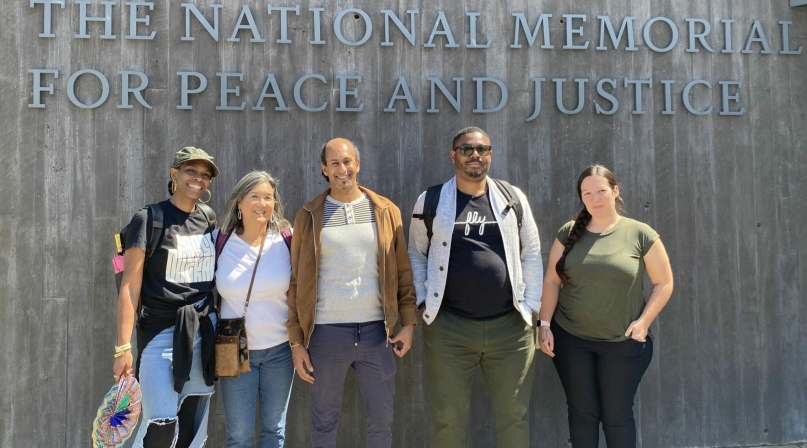Santa Clara County celebrates Youth Justice Action Month with a youth-led model

Since 2008, U.S. Department of Justice’s Office of Juvenile Justice and Delinquency Prevention has made National Youth Justice Action Month (YJAM) an annual campaign to raise awareness to the experiences of young people and families who come into contact with the youth justice system. Since that time it has continued to be recognized by the Office of Juvenile Justice and Delinquency Prevention and others in the field.
This October, counties are encouraged to host events like youth job fairs, town halls and policy roundtables to support the transformation of the juvenile justice system.
Santa Clara County, Calif., a leader in youth-led change, showcases how counties can take ongoing action to improve the juvenile justice system. The Youth Advisory Council (YAC), a collaboration between Fresh Lifelines for Youth (FLY) and the Santa Clara County Juvenile Probation Department, empowers young people to shape the juvenile justice system.
In 2017, the county’s probation chief launched an initiative to improve policies and build trust between probation officers and youth. The department selected FLY, a local nonprofit, to partner on the project. FLY held focus groups with youth of different demographics to understand what was working and what needed improvement.
Miracle Teo initially engaged in the focus group to share her experience as a young adult on probation and enjoy the gift cards and food served at the session. Soon after, she learned that the SCC Probation Department wanted to create the YAC and would compensate members for participating, and she became a YAC founder. FLY explained how the YAC would be led by youth and for youth, but this compensation from the SCC Probation Department signified that they valued youth and were committed to this mission.
The YAC is entirely youth-led, with support from the YAC Coordinators — one supervisor from FLY and one from the SCC Probation Department. YAC members developed their own code of conduct, structure, agenda, roles and accountability measures. As they developed by-laws, they determined that each member would receive a $200 monthly stipend, which covers two meetings and one-on-one professional coaching sessions. As the council grew, members began to serve as “youth justice consultants,” earning $25 per hour for additional roles on other councils and workgroups.
“The YAC wasn’t just about taking from young people; it was about pouring back into them and helping them reach their goals, whether through career readiness, mentorship, or other support,” Miracle said. “It encouraged me that through our experiences, we can transform and make the system better.”
The YAC’s first major initiative was creating an orientation for youth and families entering probation, aimed at breaking stereotypes and building positive relationships. Probation officers quickly noticed an improvement in how youth engaged with their sessions.
Since 2017, the YAC has helped develop a probation dismissal protocol, consulted on restructuring a youth facility, and participated in training new probation officers. Teo’s involvement led her to serve on the Annie E. Casey Foundation advisory board, ultimately leading to a career as a consultant.
The YAC has set an example of how youth-led initiatives can create meaningful change. As Teo shared, “If I were to offer one piece of advice for county leaders looking to work with justice-involved youth, speak with them to see what would work in their community. Let youth lead the process.”
Featured Initiative
County Juvenile Justice Innovation Network
The County Juvenile Justice Innovation Network works to enhance counties' capacity to meet the needs of youth in local juvenile justice systems. Teams engage both virtually and in-person to share challenges and successes, learn from national and local experts and exchange ideas to empower youth and improve local outcomes.

Related News

HRSA Releases Final Reentry Care Guidelines Following NACo Input
On November 29, the Health Resources and Services Administration (HRSA) released their final Policy Information Notice (PIN) with policy guidance for health centers who support transitions in care for justice-involved individuals reentering their communities.

House Transportation and Infrastructure Committee advances, House passes key bill with NACo’s support
On September 18, the U.S. House of Representatives Committee on Transportation and Infrastructure held a full committee markup session, voting to advance 29 measures for House floor consideration.

Congress advances Second Chance Act reauthorization
On December 4, the Senate passed the Second Chance Reauthorization Act (S.4477) by unanimous consent, a major milestone for supporting county reentry programs. NACo supports this legislation, which would reauthorize funding for Second Chance Act programs for five years.
